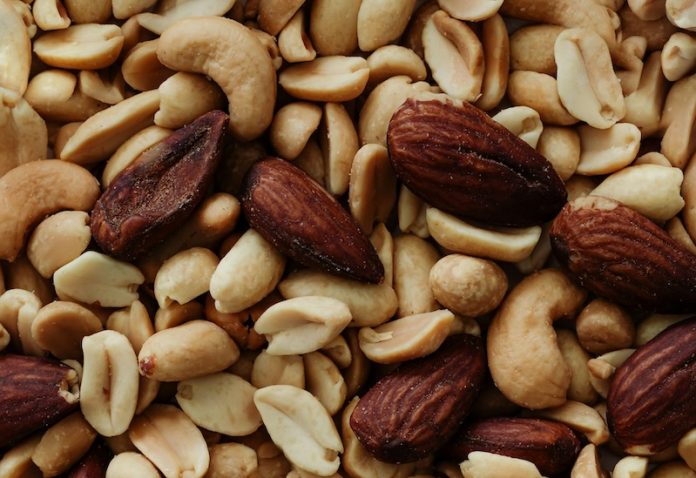
A recent study by scientists at the University of Toronto suggests that eating nuts instead of carbohydrates could help people with type 2 diabetes manage their blood sugar levels.
The study adds to the growing evidence that nuts, known for their health benefits, may play a key role in managing diabetes and improving heart health.
Nuts are dry fruits with edible seeds or kernels protected by a hard shell. Popular varieties include almonds, walnuts, cashews, pecans, pistachios, and peanuts. They are known for being rich in healthy fats, vitamins, minerals, and fiber.
Previous research has shown that including nuts in a diet can help with weight management and reduce the risk of chronic diseases like heart disease.
In this study, researchers explored how replacing carbohydrates with nuts could affect blood sugar, cholesterol, and overall heart health in people with type 2 diabetes.
The study also examined whether eating nuts could influence LDL cholesterol (commonly called “bad” cholesterol) and blood clotting, both of which are important for reducing heart disease risk.
The study involved 117 older adults with type 2 diabetes who were already taking medications to lower blood sugar. Participants were divided into three diet groups for three months:
- Full-dose nut diet: Participants ate 75 grams of mixed nuts daily.
- Full-dose muffin diet: Participants consumed three whole-wheat muffins daily, designed to match the protein and energy content of the nuts but derived from carbohydrates.
- Half-dose nut diet: Participants had smaller portions of both nuts and muffins.
The researchers found that the full-dose nut diet provided more energy from healthy monounsaturated fats compared to the muffin diet.
It also led to better control of blood sugar levels. In addition, the full-dose nut diet significantly reduced LDL cholesterol and other harmful cholesterol particles, both of which are linked to heart disease risk.
While the study showed promising results, it’s worth noting that one participant on the half-dose nut diet experienced a heart rhythm issue after shoveling snow, although this was not directly related to the study. No other serious health problems were reported.
The findings suggest that nuts could be a valuable addition to the diets of people with type 2 diabetes, particularly when used to replace carbohydrate-rich foods. However, the researchers emphasized that not all nuts are the same, and their health benefits may vary.
For example:
- Almonds are high in calcium and essential nutrients.
- Pecans are rich in dietary fiber, which supports digestion.
- Macadamia nuts are packed with monounsaturated fats that may help maintain healthy cholesterol levels.
- Walnuts are a great source of omega-3 fatty acids, which are good for heart health.
Future research is needed to better understand how different types of nuts may benefit people with type 2 diabetes. For now, the study highlights that nuts are a simple and nutritious option for improving blood sugar control and reducing cholesterol levels in people with diabetes.
The research, conducted by Dr. David J. A. Jenkins and his team, was published in Diabetologia, contributing to a growing understanding of the role of diet in managing diabetes and heart health.
If you care about diabetes, please read studies about Vitamin D and type 2 diabetes, and what you need to know about avocado and type 2 diabetes.
For more information about diabetes, please see recent studies about how to eat to prevent type 2 diabetes, and 5 vitamins that may prevent complication in diabetes.
Copyright © 2025 Knowridge Science Report. All rights reserved.



